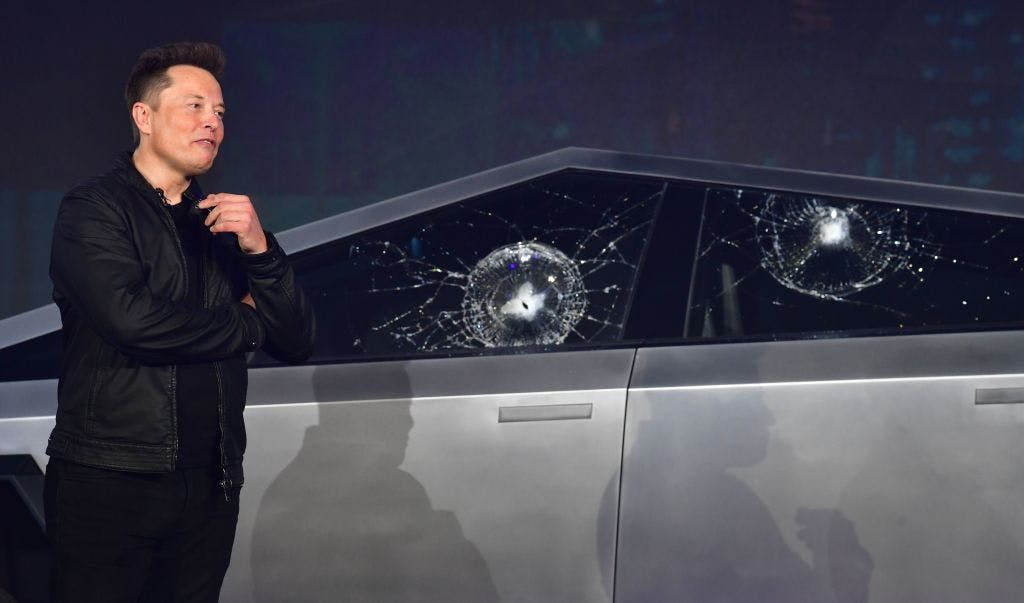Tesla’s terrible 2024 isn’t boding well for 2025
A look back at last year’s fundamentals doesn’t make this year look so hot.
So much of Tesla’s swollen stock price is predicated on its potential future — fully self-driving cars, autonomous taxis, humanoid robots, AI, its CEO ingratiating himself so much with the future president that he won’t go through with policies that directly harm it. But looking back on what it actually did last year, things don’t look so hot.
“2024 fundamentally has been an utter disaster for Tesla,” CEO and founder of GLJ Research Gordon Johnson told Sherwood News. “The reality is their fundamental business is imploding.”
Tesla has long been a stock that doesn’t trade on fundamentals, Morningstar strategist Seth Goldstein said, noting that for Tesla, 2024 was “not a great year — at best an OK year.”
“As long as there’s market enthusiasm for upcoming businesses — and Musk has appeared to bet the company on the successful launch of the Robotaxi and full self-driving software — I think we will see the share price respond accordingly,” Goldstein said.
The stock had been up more than 70% since Trump, whose campaign Musk heavily contributed to, won the election, though recently it has come down a bit.
It should also be noted that Musk has a long history of promising things that haven’t actually come to pass, including unassisted full self-driving and a solar business. Its existing features don’t always work as promised, either, as the feds are currently investigating its Actually Smart Summon (A.S.S.) feature. And its future products are unproven.
That makes Tesla’s fundamentals especially important. While Tesla’s full 2024 financial picture won’t be out till the end of the month, looking at the first three quarters as well as analyst estimates, it’s pretty disappointing: its annual deliveries declined for the first time in more than a decade, discounts are eating into its revenue, and margins were down.
It looks like that reality might be starting to kick in for some. Today Bank of America downgraded Tesla’s stock recommendation from “buy” to “neutral” thanks to the company’s already sky-high valuation and the high risk on whether it’ll actually be able to execute its plans.
A company that’s priced for exponential growth just saw a decline
Tesla’s annual delivery numbers came out last week and they missed both analysts’ and Tesla’s own expectations, shrinking for the first time since the company went public, from 1.81 million in 2023 to 1.79 last year.
“A company valued for exponential growth just went ex-growth,” Johnson said. “In any normal time a company valued at this multiple that saw its units decline would get annihilated.”
As much as Elon Musk tries to shift investors’ focus to the company’s future products, the fact remains that electric vehicles are still its main revenue source, representing about 80% of its revenue last quarter.
Morgan Stanley blamed the miss on a “relatively aged product and increased availability of lower priced competition globally.” Meanwhile, most other car companies sold more electric vehicles than normal. Unlike Tesla, the couple of European automakers who experienced a dip in EV sales saw their stocks go down.
Even Tesla’s latest model, the much hyped Cybertruck, seems to have had lackluster sales. The company claimed to have more than a million reservations for the Cybertruck, which came out in the beginning of 2024, but only managed to sell about 40,000 before letting people without reservations buy the truck, according to an estimate by EV publication Electrek. Electrek also suspects that Cybertruck sales declined in Q4 versus Q3 despite opening up reservations and offering cheaper models.
While Tesla has delayed its affordable cars, its regular vehicles are going for less
Despite Musk’s preference for future products, such as an affordable Cybercab and a less expensive Model Y, it’s not as if Tesla isn’t trying its best to sell its existing cars. The company has been offering numerous discounts on its existing fleet as well as pushing zero percent financing heavily last year. It doesn’t appear to have helped move cars — just push down how much the company is making on those cars.
On average, its vehicles were going for $41,000 a piece, according to estimates from FactSet last quarter — about half what they once did.
The company’s margins aren’t what they used to be
Despite a jump last quarter, the company’s operating margins aren’t what they used to be. Analysts are expecting 10% operating margins in Q4, according to Bloomberg data, down from 16% a couple years ago.
That’s despite strong regulatory-credit sales. Tesla notably gets a huge chunk of its profits from selling regulatory credits to other automakers. Last year’s discounts won’t make things better.
Going forward, things could get worse if Trump goes forward with his plan to lower emissions standards. If other companies no longer have to buy those regulatory credits off electric-only Tesla, it would be a huge dig at its margins.
Johnson believes the company’s margins are in for a hugely negative move: “Their margins are likely going to show a bloodbath drop.”
No one actually knows what will happen with Tesla’s future. What we do know is what’s already happened, and for Tesla that doesn’t look great.
